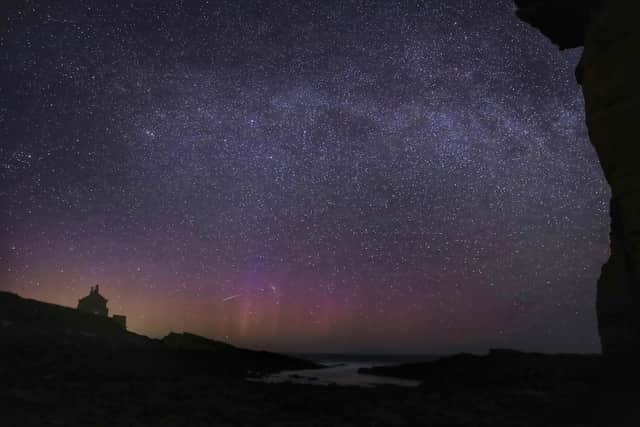The Draconid Meteor Shower: Here's when you can see spectacular lights in Portsmouth
and live on Freeview channel 276
The Draconid meteor shower is an annual celestial event which comes round each October.
Weather permitting, peak visibility for the constellation – headed by Draco the Dragon – will take place in the early evening tonight and around nightfall.
Advertisement
Hide AdAdvertisement
Hide AdYou will still be able to see it tomorrow evening – and it may still be visible on Sunday.


Usually you need to get up in the early hours of the morning to see similar displays, but the Draconid shower appears as soon as it gets dark.
Stargazers won’t need a telescope or any other equipment to catch a glimpse of the shower, but the sky does need to be clear and not blocked out by cloud or light pollution.
The Met Office forecast the weather to be cloudy this evening, and partially cloudy tomorrow evening, which may reduce the chance of the shower being seen.
Advertisement
Hide AdAdvertisement
Hide AdYou also have to let your eyes adjust to the sky and not look at bright devices.
What is the Draconid Meteor Shower?
The Draconid meteor shower is created from the debris of comet 21 P/ Giacobini-Zinner.
It traces the path of the star constellation of Draco, the origin of it’s name.
The shower is also known as the Giacobinids, named after the man who discovered the comet, Michel Giacobini.
Advertisement
Hide AdAdvertisement
Hide AdDraco the Dragon is the point in which the meteors appear to radiate, it’s ‘radiant’ point, giving off a bright light display as the earth passes through space debris from the comet.
You do not need to find the head of the constellation to see the shower, as the meteors will be across the sky, though it tends to be less active than others.
A message from the Editor, Mark Waldron
We’ve slashed the cost of digital subscriptions to our website by 50 per cent for a limited time.
You can now subscribe here for unlimited access to our online coverage, including Pompey, for less than 13p a day.
Comment Guidelines
National World encourages reader discussion on our stories. User feedback, insights and back-and-forth exchanges add a rich layer of context to reporting. Please review our Community Guidelines before commenting.
